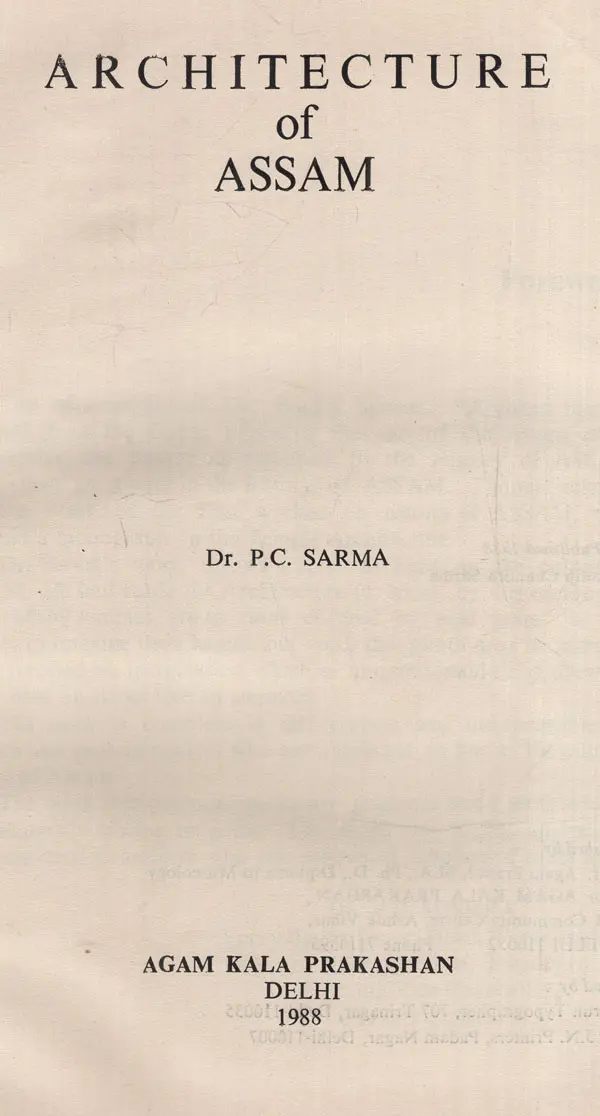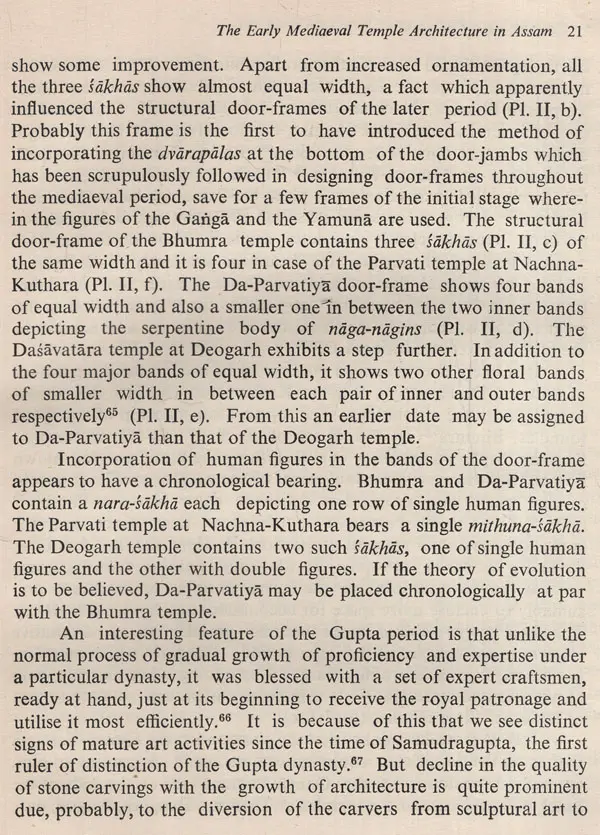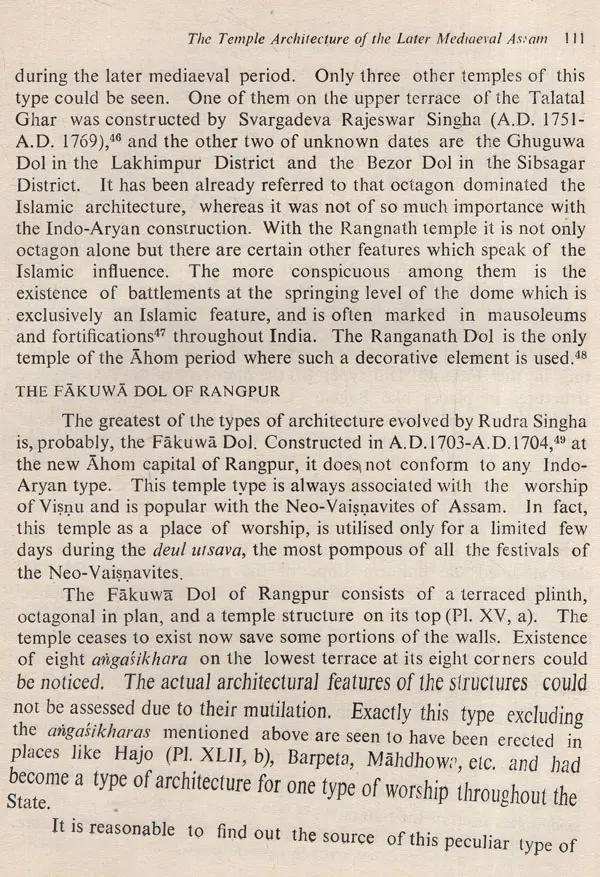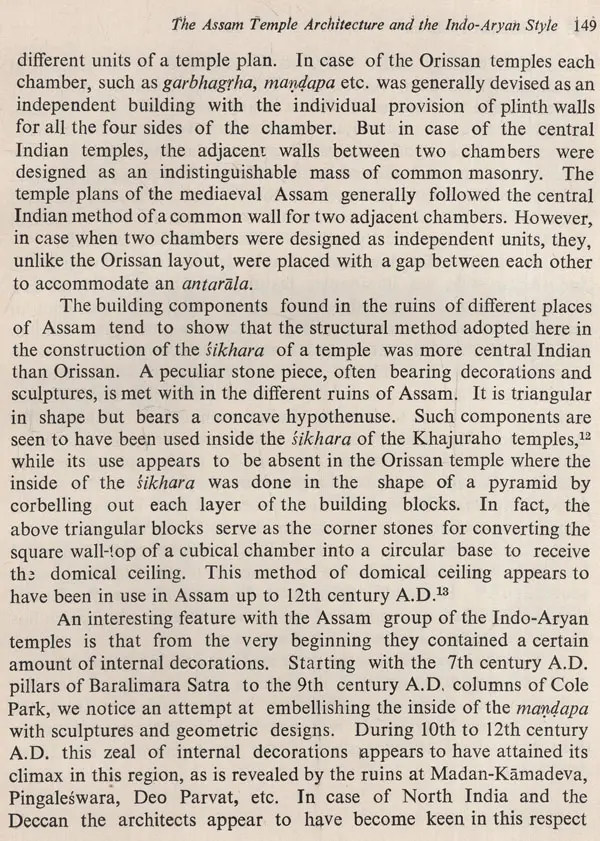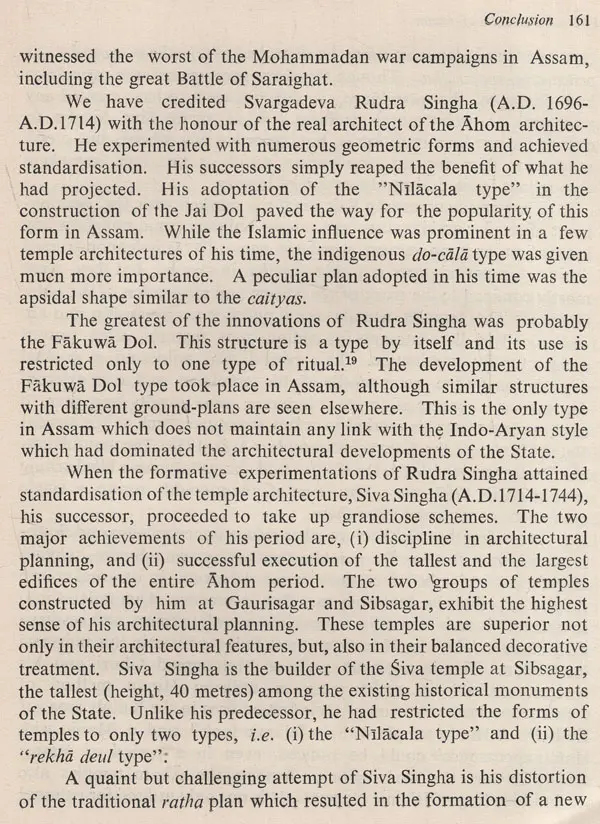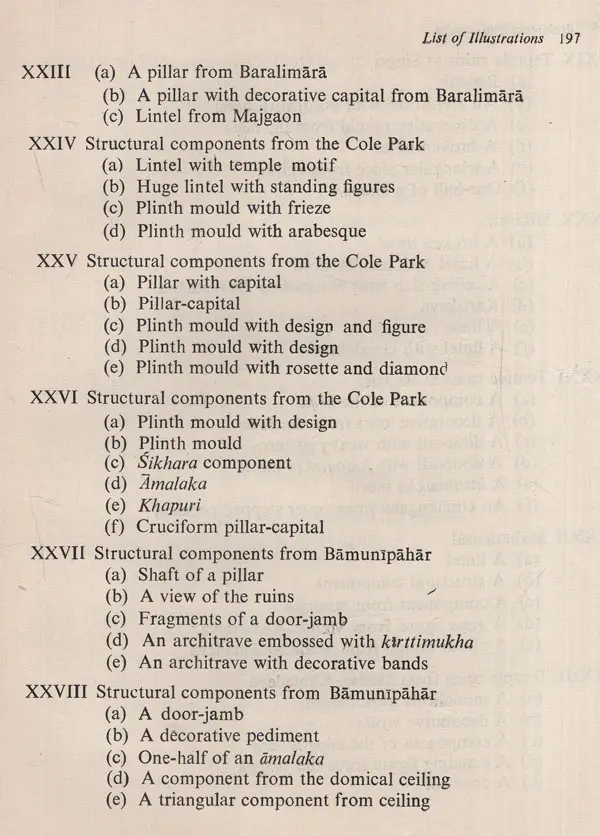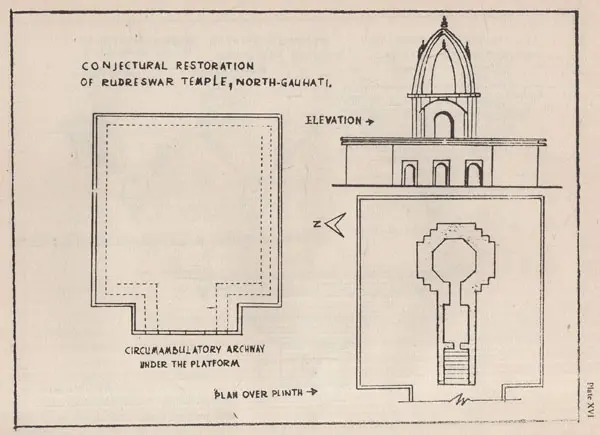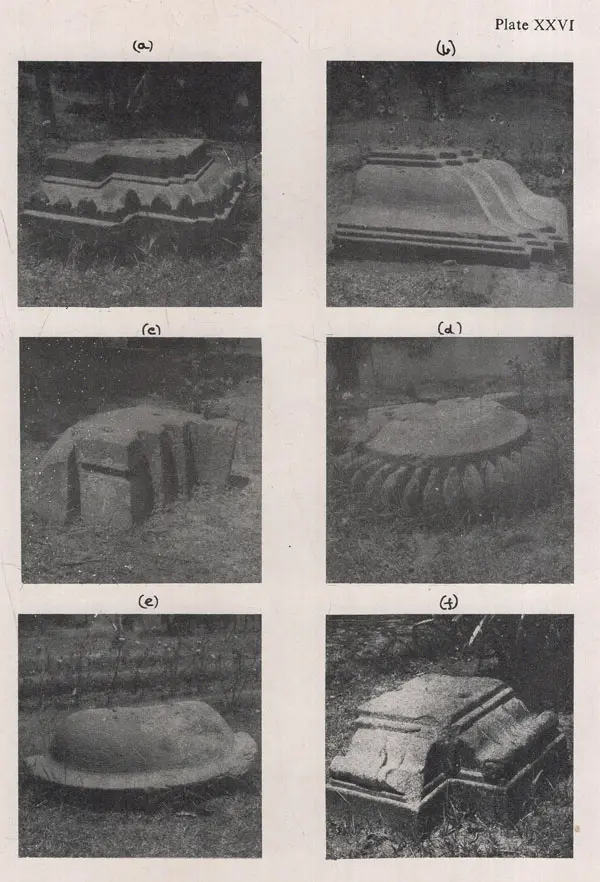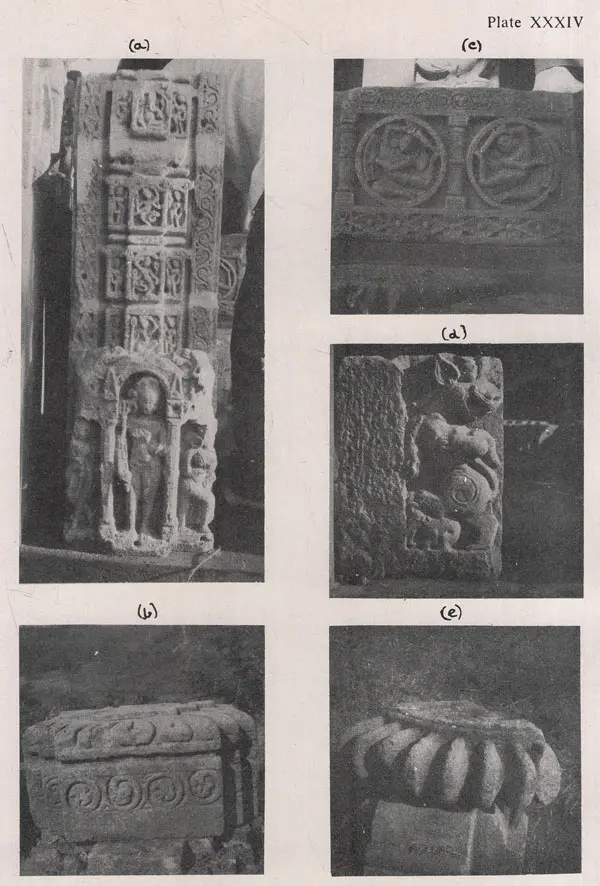
Architecture of Assam (An Old & Rare Book)
Book Specification
| Item Code: | UAP842 |
| Author: | Dr. P. C. Sarma |
| Publisher: | Agam Kala Prakashan, Delhi |
| Language: | English |
| Edition: | 1988 |
| Pages: | 280 |
| Cover: | HARDCOVER |
| Other Details | 9.80 X 7.50 inch |
| Weight | 740 gm |
Book Description
As far the later-mediaeval temples, the majority of which are standing intact at present, save for their vegetal outgrowths and weathering, the author has precisely traced the stylistic evo lution, affinities, deviations and exotic elements in them, with copious illustra tions. In doing so, he has most skillfully sorted out the novel features that this architectural form has developed against their basic Indo-Aryan form.
The book is the result of author's strenuous field-works for six consecu tive years under strict academic discipline. He has had his best, with the meagre materials available to him, in making it as objective as possible.
Dr. Sarma has published a number of research papers on diverse subjects as well as popular articles and radio talks, such papers and articles numbering around fifty.
Dr. Sarma's work throws a flood of light on the culture of ASSAM. He had made the Architecture to speak by his on the spot study. Many temples are in ruins covered by wild grass. It was difficult to imagine their height, but with the plinth area he scientifically exercised his imagination which is unquestionable and drew the whole plan on paper like an engineer.
The work is complete in all respects and indispensable for scholars and general readers who are interested to know the cultural history of Assam.
The work was prepared under my guidance and I went through it meticulously sparing no pains. The work was highly appreciated by his external Examiners who are renowned scholars of India in the field.
I have made an attempt to study the origin and development of the Assam temples in the light of the available material from the Gupta period to the end of the Ahom rule in Assam. The study has been divided into two major parts: the Early Mediaeval Temple Architecture in Assam and the Architecture of the Later Mediaeval Assam. Emphasis has been laid on the study of the general lay-out, ground-plan and vertical features of the temple-structures. Since the temples in Assam appear to have borne the similar basic North Indian features of the nagara style, a comparative study with the North Indian temple architecture has been made with a view to bringing out the full architectural features of the temples in Assam, their origin and gradual deviations. So far as the Ahom temples are concerned, the age of most of the temples is well recorded, either in inscriptions or in the chronicles, but the age of the pre-Ahom temples is not known. An attempt is, therefore, made to determine the age by comparing the existing temple-components, such as, ground-plan, general-lay-out, door-frames, sculptures, friezes, architraves, pillar-capitals, decorative designs, etc. with their counterparts in temples of known dates in other parts of India.
The main sources of our information for the study have been the temple-ruins and the extant temples. The earliest known site in Assam is the ruins of Da-Parvatiya temple near the modern town of the Tezpur in the Darrang District. This site contains a typical door-frame of the Gupta period which has been acclaimed as one of the finest pieces of the contemporary art. The age of the ruins of the temple-complex over which this frame stands is a matter of contro versy among the scholars. I have made an attempt to determine the age in the following pages by a thorough on the spot study of the site and the ruins.
Tezpur and Gauhati abound in archaeological ruins of the pre Ahom period. Some of the door-jambs, lintels and architraves, now preserved in the Cole Park of Tezpur, are said to be of the 8th-9th century A.D. Other structural remains which are lying scattered in and around the town have been examined to determine the type and chronology of the temples. The ruins of the pre-Ahom temples in Gauhati and all over the Brahmaputra valley lying in abundance have been used to develop the thesis.
As regards the old temples now in existence, most of them cluster round the towns of Hajo, Gauhati, Biswanath and Sibsagar. All of them were constructed during the Ahom period. It is interesting to note that a few of them have the plinths of earlier period which are definitely of pre-Ahom origin. A study of these plinths has yielded valuable results to construct the architectural history of the temples in the pre-Ahom period.
**Contents and Sample Pages**
